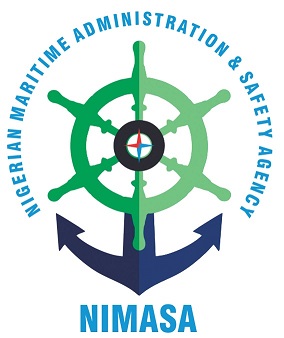The Executive Secretary, Nigerian Shippers’ Council (NSC), Barr Hassan Bello, on Tuesday, explained that the council as the Ports Economic Regulator was appointed to bring about desired efficiency for all providers and consumers of shipping services at the ports.
Bello explained that in carrying out this function, the regulator consults, coordinates, moderates and harmonizes the various processes and procedures with a view to achieving operational efficiency at the ports.
But he warned that his agency would apply appropriate sanctions to ensure compliance where there is “unreasonable resistance.”
He, however, assured that as a ports regulator, the Council was open, independent, neutral and consultative”, adding that all decisions were usually based on the buy in of stakeholders.
He also explained that the Council was not competing with any other government regulatory agency but thrives to
actualize the mandate of making the ports the sub-regional hub and the international logistics centre.
actualize the mandate of making the ports the sub-regional hub and the international logistics centre.
Bello who spoke during a media interaction at Rock View Hotel, Apapa, Lagos, called on other agencies of government in the ports, particularly the NPA, NIMASA, Customs Service, Immigration Service, SON, NAFADAC, the Police, among others for support and cooperation.
He added that the agency would rely on the political will and support of government to succeed in its assignment.
On the importance of the global competitiveness of the Nigerian ports, Bello said this has a major role to play
in the attraction of Foreign Direct Investment.
in the attraction of Foreign Direct Investment.
Noting that the port reform has no doubt brought in tremendous benefits to the national economy, Bello however said there was still the need to harness other potential areas of the port sector with a view to bringing down the cost of doing business and enthrone efficiency.
On the effect of economic regulation in the ports, he said that every stakeholder has a good story to tell, adding that for the seaport terminal operators, there has been guaranteed return on their investment and increased profitability.
Bello defined economic regulation as an attempt by government to monitor and correct any disorder in the working of a free market to address anti-competitive behavior, adding that the focus was on market rules, tariffs, quality service, access and incentives regulation.
He also said that there have been improved revenue generation, improved infrastructure development, creation of
efficient market, reduction of cost of doing business, improvement of the nation’s Global Competitive Index and consequent attraction of Foreign Direct Investment (FDI) for those in the transport and logistics chain.
efficient market, reduction of cost of doing business, improvement of the nation’s Global Competitive Index and consequent attraction of Foreign Direct Investment (FDI) for those in the transport and logistics chain.
For the shipping companies, he identified improved delivery of marine and terminal handling services that led to reduced turn around time of vessel, reduced cost of vessel operations.
He also added that there has been positive achievement due to customs confidence, transparency, efficiency and
effectiveness and consequent improvement in image.
effectiveness and consequent improvement in image.
Bello identified strengthening of complaint and arbitration mechanisms, prompt issuance of ship sailing
certificate and the consequent avoidance of demurrage accumulation against shipping companies as among the benefits.
certificate and the consequent avoidance of demurrage accumulation against shipping companies as among the benefits.
On the effect of regulation on the NPA, he said that there has been enthronement of clearer Standard Operating
Procedure (SOP) derived from international laws and practices.
Procedure (SOP) derived from international laws and practices.
Other benefits include transparency, efficiency and effectiveness and consequent improvement in image, revenue
generation, and competitive advantage in the sub-region, strengthening of complaint and arbitration mechanism.
generation, and competitive advantage in the sub-region, strengthening of complaint and arbitration mechanism.
He equally identified the Nigeria Customs Service (NCS), importers, exporters and freight forwarders as having benefited from the economic regulation in the ports.
Other effect on regulation include harmonization of clearing processes and procedures and the consequent reduction in cost and time of cargo clearing, reduction of cargo duel time, strengthening of complaint and arbitration mechanisms, among others.




































































